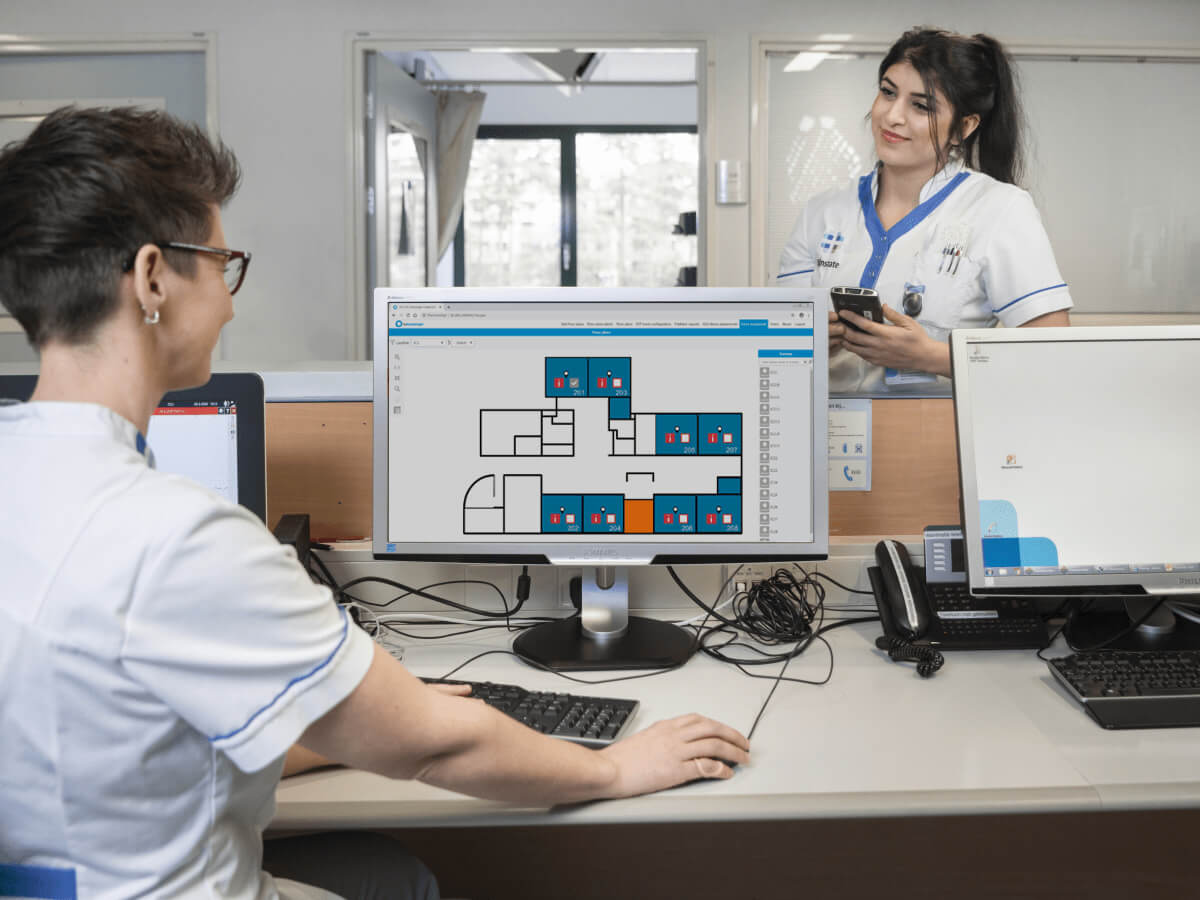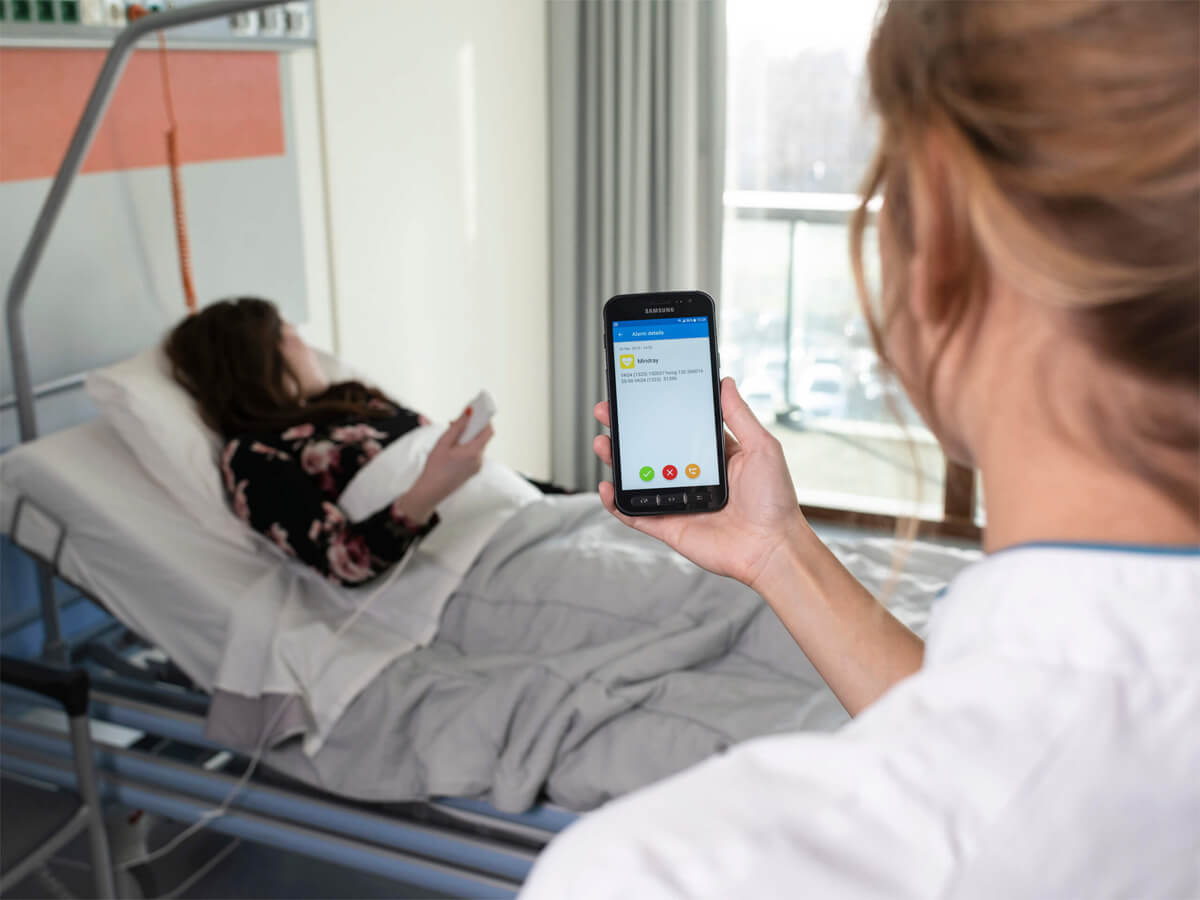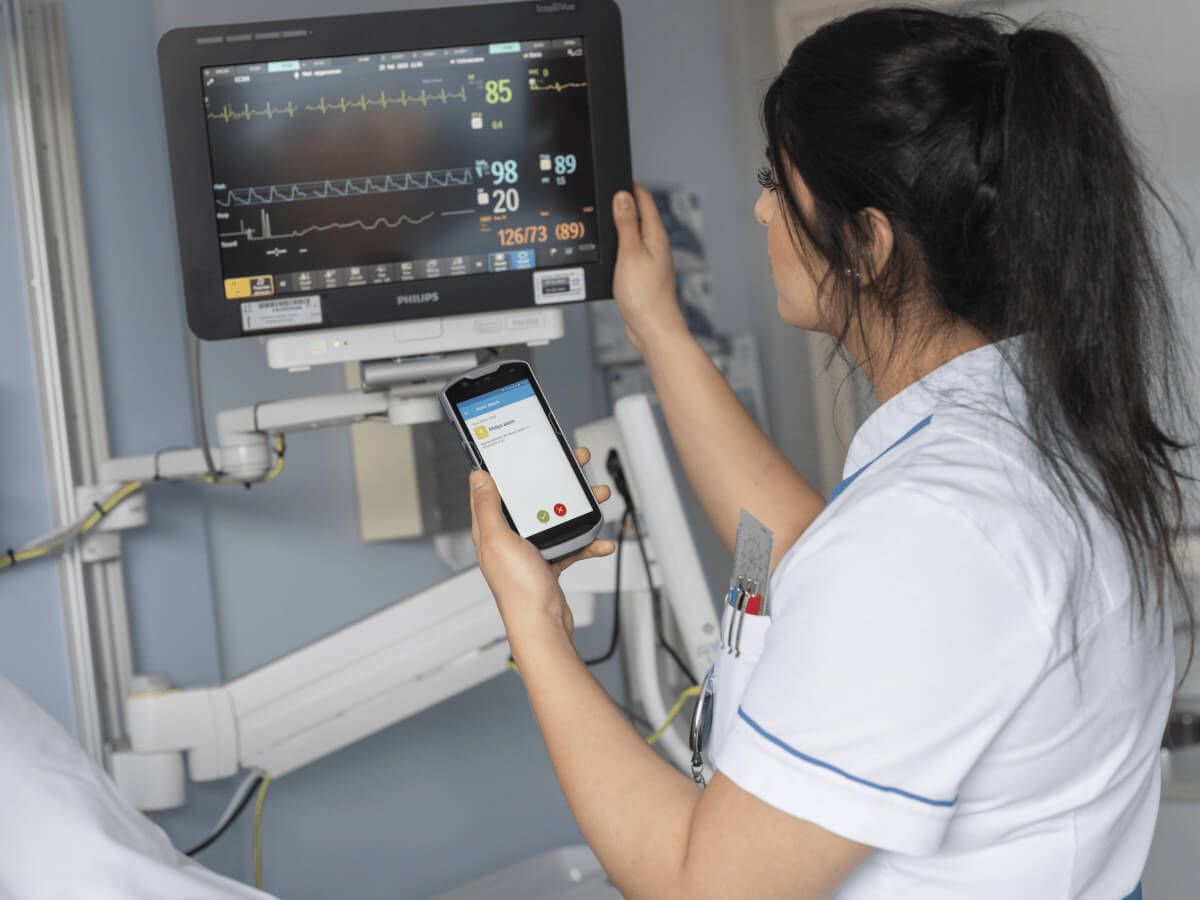Alarm fatigue reduction
The IQ Messenger platform helps healthcare organisations to greatly reduce the number of alarms, distribute them, make them more recognisable and mark them with the right priority. We do this with our alarm fatigue solutions.
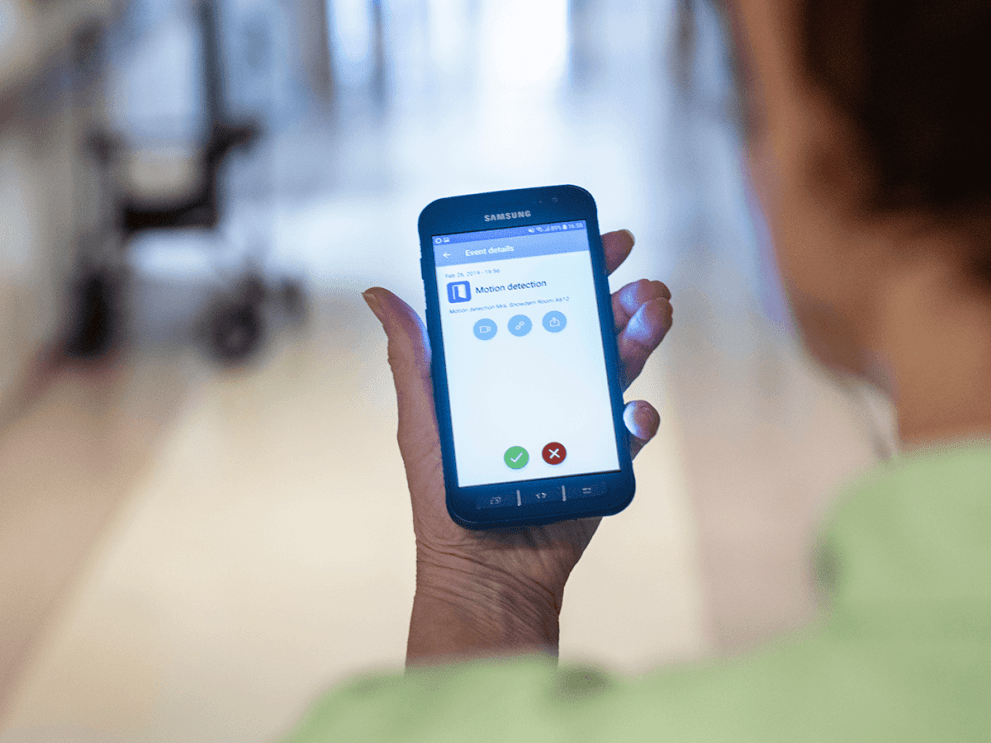
What is alarm fatigue?
Alarm fatigue occurs when healthcare professionals are exposed to an excess of alarms in a healthcare setting such as an ICU in a hospital or SCU in a nursing home. Often a large part consists of irrelevant alarms. A flood of alarm notifications causes stress and irritation and reduces productivity and alertness of healthcare professionals. Alarm fatigue should be considered a serious matter as it impacts directly on the performance and well-being of nurses as on patient safety.
To ensure that alarm notifications are not missed, they are accompanied by an acoustic signal. Various studies were conducted into this topic. Alarm fatigue should be classed as a serious problem. That is why we created alarm fatigue solutions.
Learn more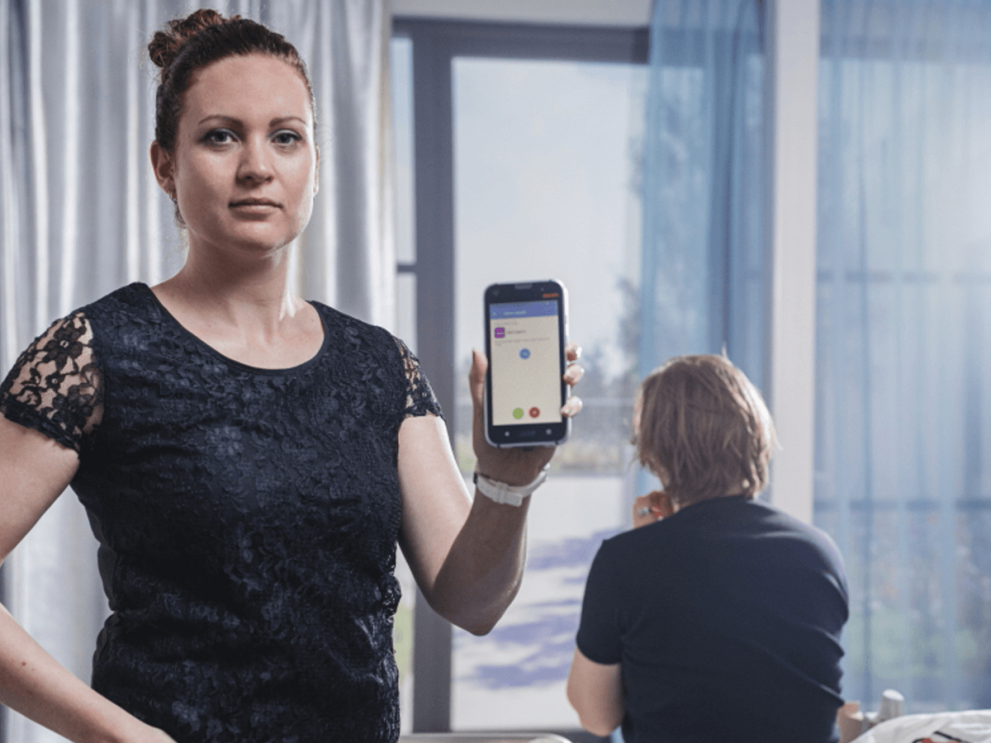
4. Activate the silent mode on medical equipment
There is a lot of noise in hospitals; the noise from medical equipment is therefore a major contributing factor to alarm fatigue. Many medical equipment has the ability to be silent. By silent we mean that the acoustic signaling of the source device (usually a medical device such as a monitor, infusion pump or ventilator) is switched off. The alarms are still visible on the source device. IQ Messenger can deliver the notifications to a device or smartphone of your choice through a monitored link according to CDAS (distributed alarm system with alarm message confirmation IEC 80001).
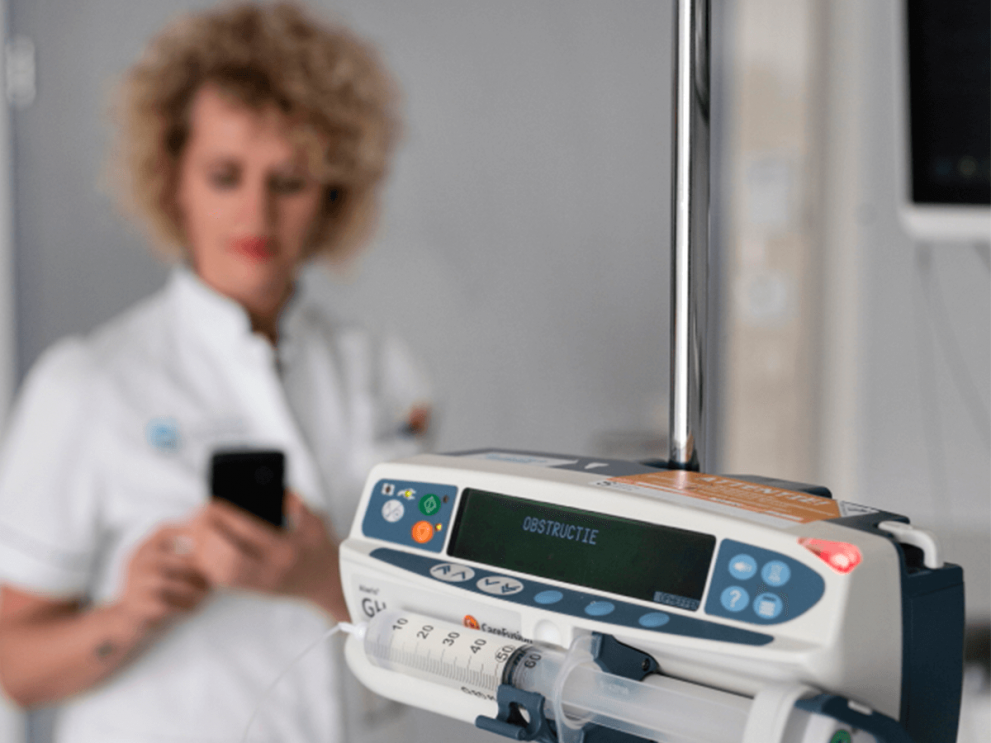
5. Send alarms to the right employee
In many cases, the alarms are sent to a group of nurses. Each alarm must be reviewed to determine who should take action next. By assigning the alarms to the right person, you prevent all nurses from receiving all (irrelevant) alarms.
For example, technical alarms are assigned to someone from the technical department and service calls are forwarded to volunteers. With the simple graphical alarm assignment application (GEA) you can easily assign the right alarms to the right person. Only the desired alarms are forwarded to the assigned nurse or other employee.
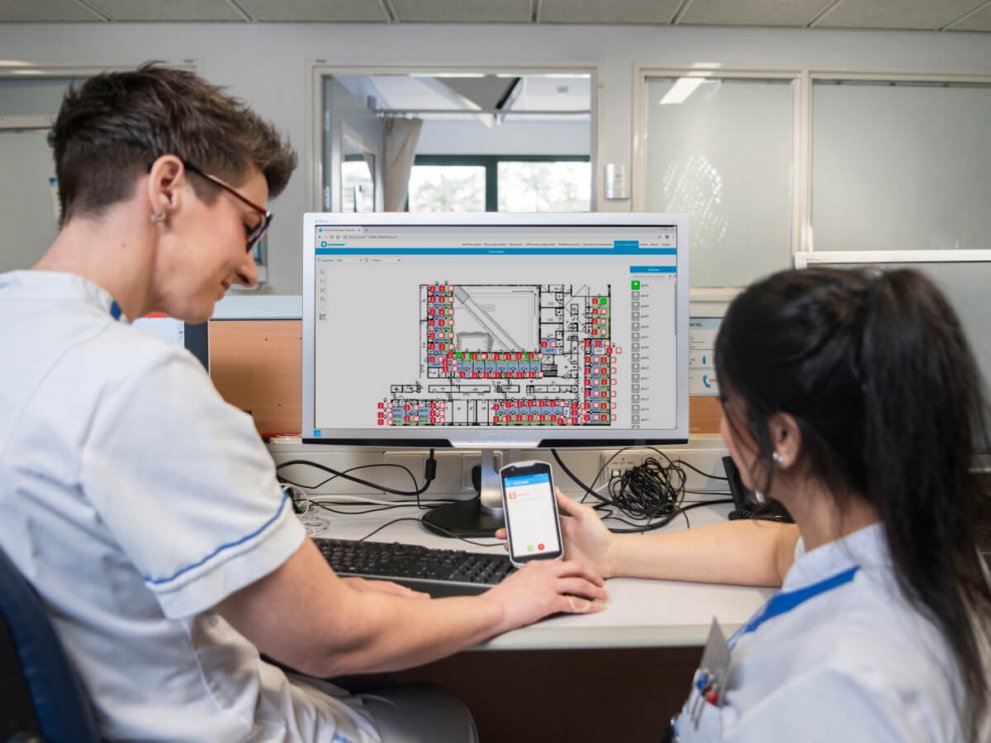
Get started with IQ Messenger.
Optimize alarm management
Keep me informed
Sign up to get the latest announcements and updates delivered to your email
Sign me up


